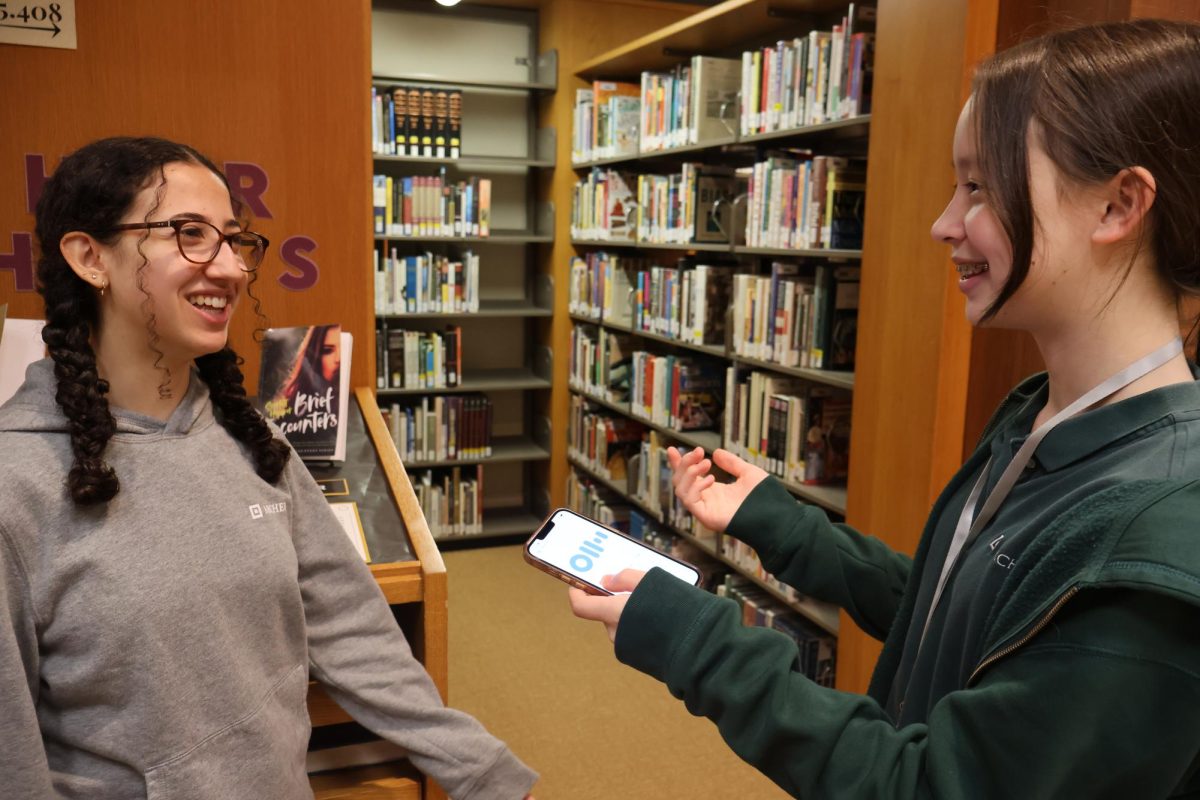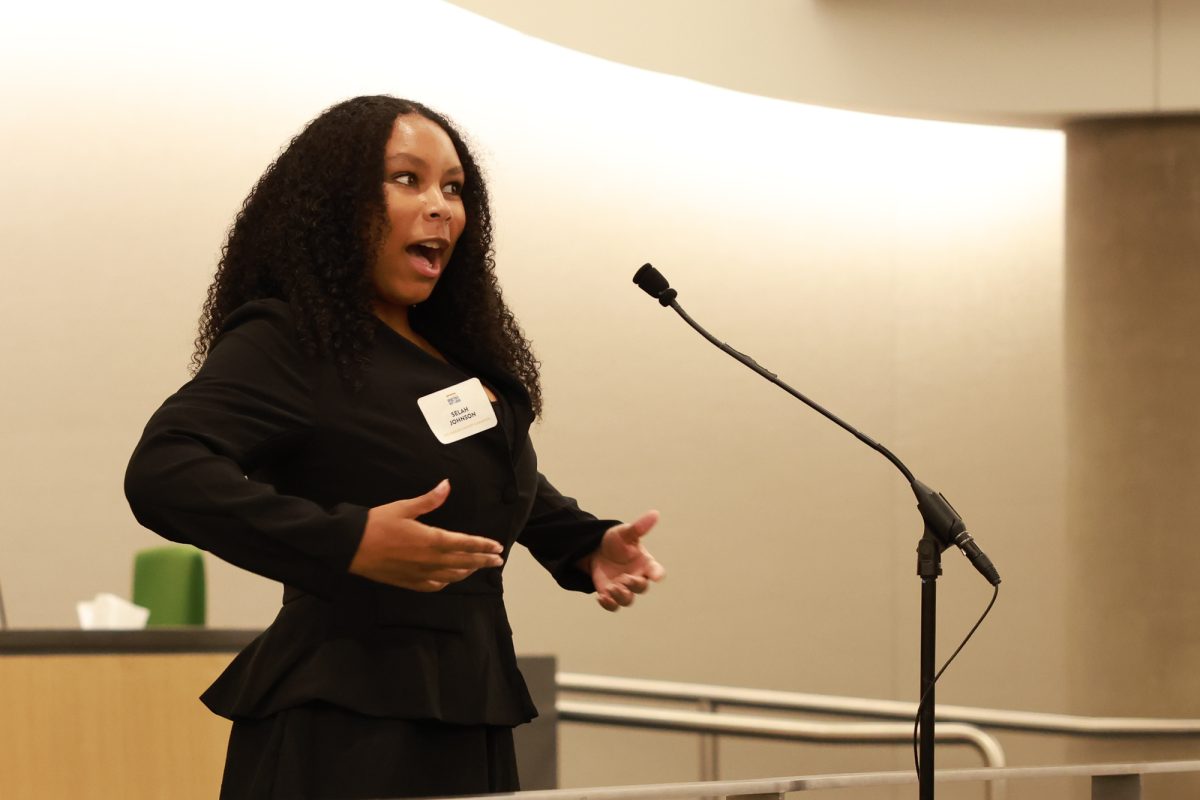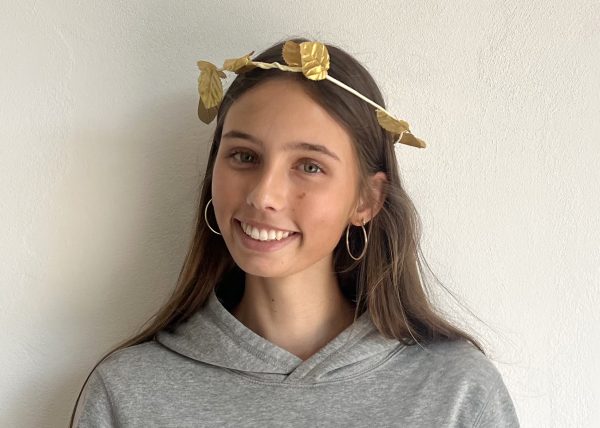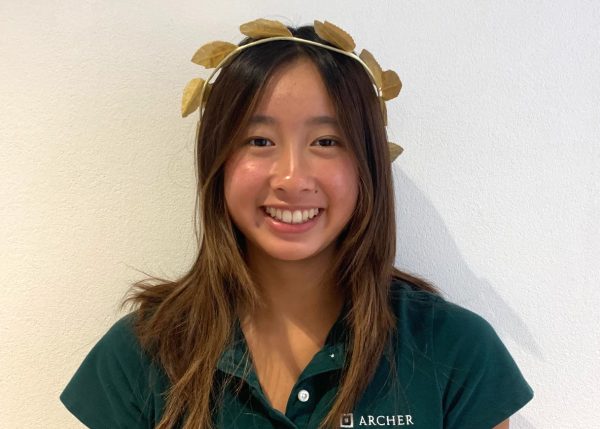The theme for the final day of National Scholastic Journalism Week is “Journalism Next,” which encourages students to consider how journalism will continue to evolve as technology develops.
The Honor Education Council presented the Archer student handbook’s new AI policies at the start of the 2023-24 school year, prompting The Oracle to define its AI usage. In September 2023, Features Editor Maia Alvarez (‘24) took the lead on writing an editorial about The Oracle’s practices regarding AI and the impact this technology will have on both professional and scholastic journalism.
“I wanted to make sure that we looked into the nuances of how AI is being used today and how that will impact journalism now and into the future,” Alvarez said. “Ultimately, what I focused on is how, despite the advancements that this technology is making, it can never replace the human voice and storytelling that journalists are most known for and best at.”
Editor-in-Chief Audrey Chang (‘24) wrote an AI policy to include in The Oracle’s “About” page based on the editorial, which is intended to state and clarify the publication’s uses of AI. The editorial board approved the policy unanimously Feb. 20.
“The idea or purpose [of the policy] is to officially define our practices around AI, especially as all of these platforms are further developing and gaining traction,” Chang said. “The reason is just to solidify our stance and put it into writing so that people can reference it as needed, and, you know, just continue to help them understand our systems.”
The Oracle’s AI policy states that while the publication does not use AI chatbots — such as ChatGPT — in any form, reporters “have the option to use Otter.ai, a voice-to-text tool, for interviews, and [they] will always listen to the recorded audio and edit the transcription to ensure accuracy.” Additionally, it clarifies that staff members are permitted to use Grammarly for minor spelling and grammatical errors, though it is not standard policy for the publication as a whole.
“Even when AI is being used for positive, small things like this, it still cannot be relied upon. Especially in journalism, it’s humans that have to understand how to use it and consider the ethical implications of it,” Chang said. “It’s important to understand AI in relation to your mission and processes. And for us right now, the use of AI — specifically chatbots like ChatGPT — doesn’t at all align with our goals or ethos as a publication.”
Allie Yang (’25) pens a column centered around the rise of technology, including AI and social media. Yang said she writes about relatable topics for students to make them feel like they have control over their technology usage and to prove that these issues can be relevant in everyday life.
“I feel like there’s this whole notion that machines are taking over and that we need to go back to very old-school pen and paper,” Yang said. “I don’t think any school or any person is going to stop this revolution of technology. It’s just going to keep continuing on … so I think the best thing to do is to lean into it and get to know more about it.”
The first article Introduction to Journalism students write is a profile on an Archer community member. Yang said this assignment is a strong example of something students cannot use AI to write, and drawing a line between creative or personal situations and mechanical matters is essential to find balance in one’s AI usage.
“A lot of the job of journalists is to — especially in student journalism — create individual stories … I think student journalists are obligated to make students feel heard,” Yang said. “Students have to create the stories themselves because AI cannot empathize with how a student feels about the dress code or about Archer’s new branding, but a student may be able to.”
Chang said she began the AI policy with “aligned with our commitment to journalistic integrity and amplifying students’ authentic voices” because she believed it was important to establish the editorial board’s reasoning behind it.
“Journalism is supposed to capture truth, be reliable and credible and resonate with the human experience, and only human journalists have this ability,” Chang said. “AI just doesn’t have the critical thinking or creativity or humanity that is at the core of journalism — or any sort of writing.”
Alvarez agreed with Chang and said relying on technology while reporting breaches the four journalistic pillars the Archer Student Media Code of Ethics is founded on. Alvarez said, by not taking any form of technology at face value, The Oracle ensures reporters are in control of how narratives are presented in the publication.
“It’s imperative that we set the tone of how we want our journalism [to look like] in this day and age to make sure that we’re amplifying the voices in our community, because who else can cover our community better than the very journalists that are a part of it?” Alvarez said. “A community is not made up of robots, it’s made up of living, breathing human beings who have their own diverse stories, and thus it’s our responsibility to tell that realistically and authentically.”
Additional reporting by Multimedia Editor Francie Wallack (’25), senior reporter Meredith Ho and staff reporter Vivi Arnold (’26).









![Faculty and students play in the Color Clash rematch March 20. Danilka Foranda-Zanipatin ('25) plays for the senior team. “Just to have some time deticated to just being supported by [a] large community… it’s just nice to have a little distraction.”](https://archeroracle.org/wp-content/uploads/2025/03/Screenshot-2025-03-20-at-4.12.21 PM.png)

